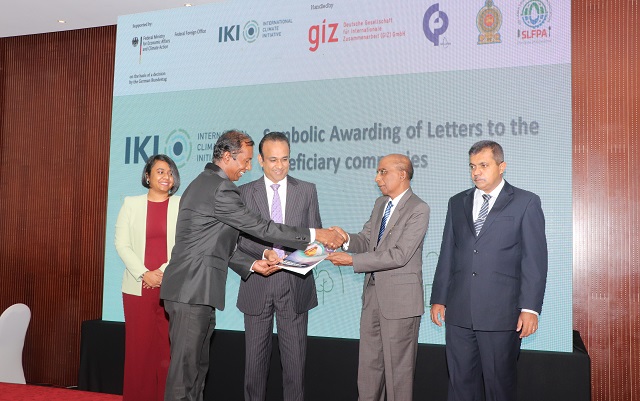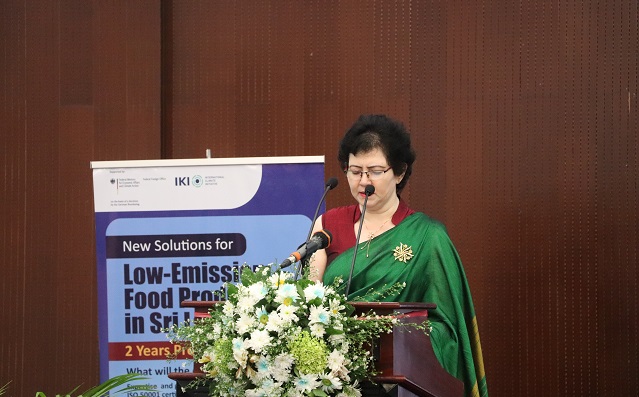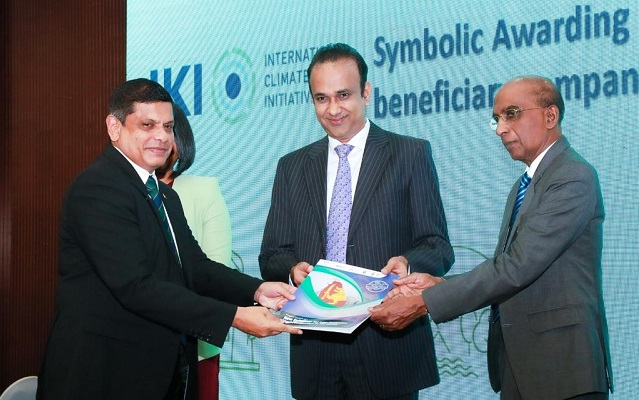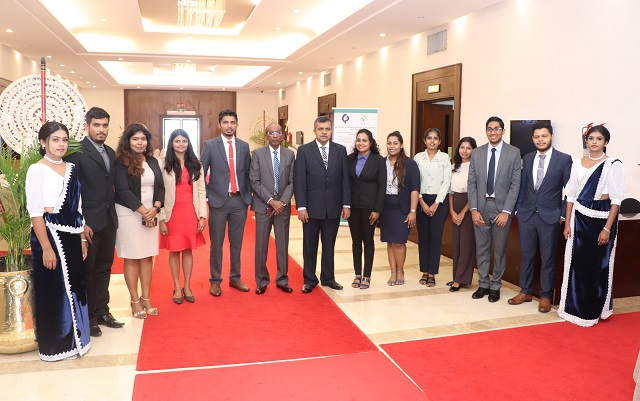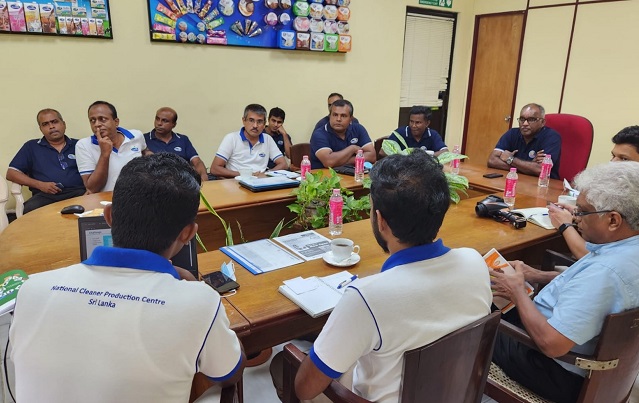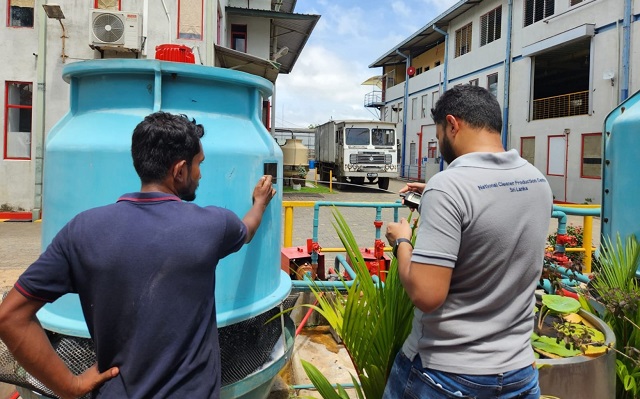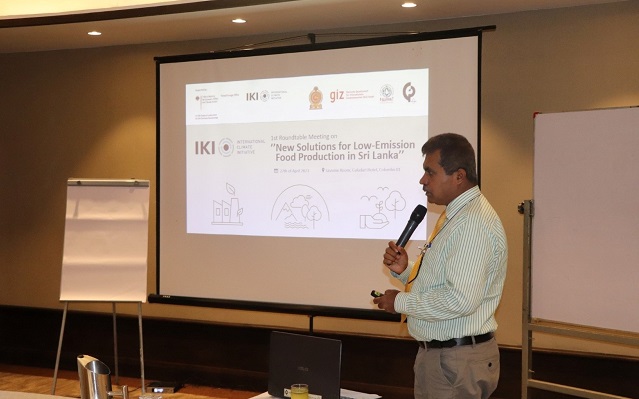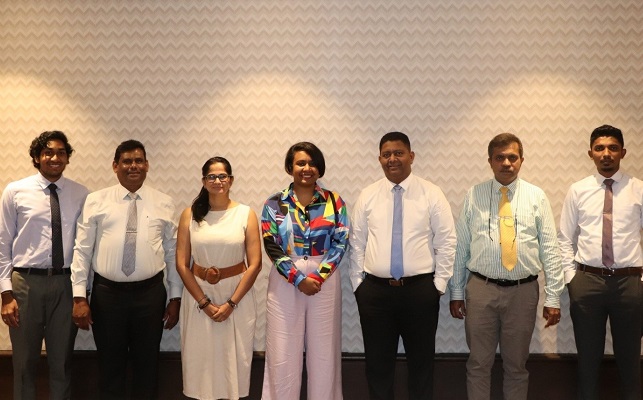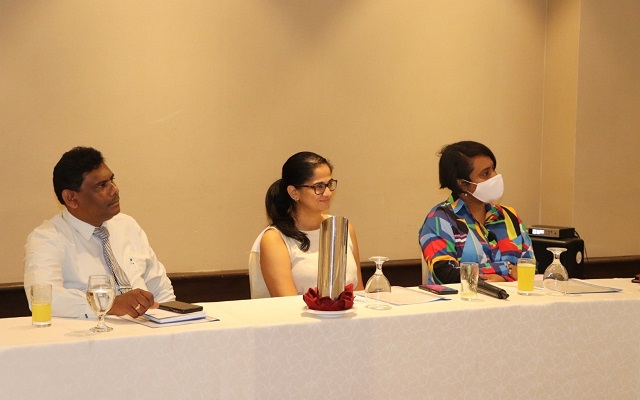New solutions for low-emission food production in Sri Lanka
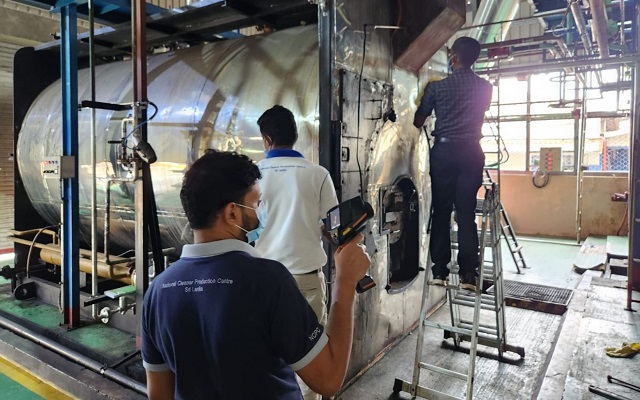
This project aims at minimising energy losses of energy-intensive Small and Medium Enterprises (SMEs) in the food sector. This is approached by implementing energy management systems, streamlining production processes, and obtaining recognition via certification and verification. The goal is to certify the participating companies as ISO 50001 energy management system-implementing companies. Companies are interested in obtaining energy management systems to reduce their energy costs. Furthermore, international certifications help improve the companies’ reputation.
INITIAL SITUATION
In Sri Lanka, 55 per cent of the total primary energy needs are satisfied by imported fossil fuels. Almost the entire transportation sector depends on fossil fuels. Electricity generation is based on coal and oil at 45 per cent. As a result, annual expenditure on fossil fuel imports is such a burden on the national economy that fuel is not always available and that power cuts appear on a regular basis. In addition, petrol prices have risen by 300 per cent and electricity tariffs for some sectors by up to 800 per cent. Thus, the promotion of renewable energy as well as increasing energy efficiency of energy-intensive SMEs are necessary.
TARGET GROUP
This IKI Small Grants project targets energy-intensive SMEs in the food sector that exceed a monthly energy consumption of more than 50,000 megajoules. Both electricity and at least one thermal energy source are considered. The selection process includes the publication of a call for applications in public media aimed at interested companies. The project activities intervene directly in the manufacturing process so that the company has an immediate benefit by minimised costs and improved production processes with reduced losses.
APPROACH AND ACTIVITIES
The project minimises the energy losses of enterprises by implementing energy management systems, streamlining their production processes, and obtaining recognition via certification and verification. The opportunity to participate in the project is publicly announced. Under the participation of a panel of judges, National Cleaner Production Centre (NCPC) hosts a roundtable to select the 25 companies to be supported in the certification process of ISO 50001.
In cooperation with the acquired companies, NCPC conducts an energy review, covering the entire production process. This initial assessment of the energy usage in the selected factories covers all main and sub-activities of the factory premises. The data is compiled into a brief report in which the representatives of each respective production site can identify their focus areas to minimise energy use. Recommendations for saving energy are also included in the report as short, medium, and long-term implementations so that the company can prioritise the areas where they can save more energy with less investment.
NCPC runs energy efficiency training programmes for employees in each company and aims to reach 30 per cent female employees. External annual energy audits carried in the past often led to ad-hoc actions to implement the recommendations, resulting in high costs. As an objective-driven approach, an ISO 50001 Energy Management System provides for continuous improvements of energy efficiency for the companies in an economical way, allowing long-term planning.
LATEST PROJECT HIGHLIGHTS AND IMPACTS
- Media campaign ‘Call for applications’ via newspapers and social media conducted, with 115 applications received
- 3 roundtable events for company selection hosted
- High-Level project launch event facilitated with the Ministry of Energy as speaker of honor
- Training programme for ISO 50001 certification to beneficiary companies conducted
- 16 out of 25 companies finalised their energy reviews
CAPACITY DEVELOPMENT
IKI Small Grants supports NCPC Sri Lanka in its organisational capacity development through advanced trainings on:
- Fundraising and climate financing
- Verifying GHG emissions
- Proposal writing, monitoring and evaluation
ABOUT THE ORGANISATION
The National Cleaner Production Centre (NCPC), founded in 2002 in Sri Lanka, aims to design and deliver demand-driven, locally adaptable solutions for industrial, business, governmental and other organisations to become environmentally friendly, socially responsible, and economically productive. In this process, they promote Resource Efficient & Cleaner Production (RECP) in various companies and business sectors in the country. Furthermore, they support partners in achieving environmental sustainability and improving knowledge via capacity building in public and private sectors.

